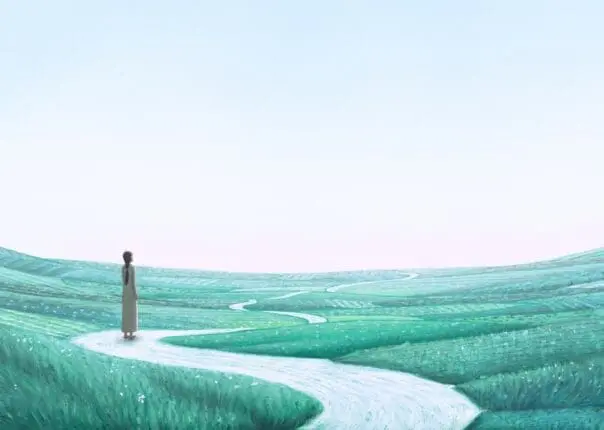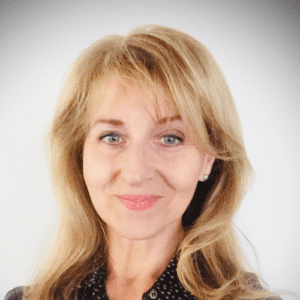I shall not spare myself in this journey, but I shall proceed with all diligence until I reach the Western Heaven.
– Xuanzang, Journey to the West
How does someone with cancer find the pathway to recovery? I’m not just talking about recovering from cancer itself, or treatment, or even the fear of dying. I’m talking about the trauma that arises when you tell people you have cancer and you’re met with silence, seemingly without any compassion.
Nine years ago, I was diagnosed with malignant brain cancer. The treatment regimen was taxing, and the surgery invasive. But I soon realized that none of these things were quite as painful as the cold reactions I received from my community when I broke the news. That pain was deep and unrelenting, one that no medication could alleviate. To people outside my immediate family, even to coworkers in the large hospital system where I was a clinician, I felt like an inconvenient reminder of what could befall them. My diagnosis was grim, and suddenly, my presence became an awkward reminder of mortality—a topic many people struggled to confront and preferred to ignore. It was easier to disregard me than to continue to treat me as a respected colleague and friend. Compassion—making eye contact, giving a warm smile, offering practical support, or even asking if it was okay to talk about my diagnosis—would’ve been welcome but was nowhere to be found. Even when I made it clear that it was okay to talk about it, people would quickly change the subject or leave to take a phone call. Some even told me how far our society needed to go in talking openly about death and dying—while avoiding eye contact or turning away. Adding insult to injury, I found myself increasingly excluded from important business decisions and meetings. “We’ll take care of things for you,” I was told shortly before being iced out.
My neuro-oncologist was the only one who validated my feelings. Of all the cancers, he said, cancer of the brain is a true “freak-out” disease, and most people just don’t know how to deal with it. Oddly, hearing someone talk this way about my cancer made me feel better.
I knew the road ahead would be long and difficult. Not only was my life at risk due to cancer, but my mental health was, too. As a therapist, I understood the impact that social fragmentation, alienation, and loss of self could have on a person’s well-being. I was teetering on the edge of a well of depression, dark and deep. I also knew I’d need to process these feelings in a constructive, meaningful way, to advocate for myself and my needs. After all, nobody else was going to do it for me. I may not have been able to change people’s reactions to my cancer, but I could control my perspective and responses.
During my first two years in treatment, I pulled out every clinical tool at my disposal: cognitive behavioral therapy, meditation, breathwork, and yoga. They became invaluable modalities for reducing my pain. With limited emotional support, I decided to be my own source of strength. As time passed, I began to develop coping skills. I still wore the scars of people’s silence, but I also learned how the aches within my heart and psyche functioned, surfacing in even the most mundane daily interactions. When they did, I’d need moments, hours, and even days to recover. This is what trauma does to you. I knew healing would be a slow, gradual journey, requiring lots of hard work.
As I moved through this journey, insights followed. I learned the true meaning of a life worth living. I learned what it means to give yourself to others, how to forgive and show compassion, and even how to let go—when that time comes—without regret and fear. I embraced things bigger than myself. I rediscovered the importance of family. Once I developed these insights, I realized that, in the end, how coworkers, acquaintances, and strangers reacted to my cancer didn’t really matter. I understood that I was worth more than the messages these people were sending me. After I met other people receiving treatment, I realized that all of them were struggling like I was. We were all trying to find ourselves again. After some time, I decided—felt called, rather—to help others through their cancer journeys. Back at work, I helped create services that would supplement the care people with cancer were receiving, including bedside counseling, guided imagery, yoga therapy, and breathwork practices. I also co-facilitated a special bimonthly meeting for physicians and clinicians, where everyone could talk about patient cases, express their feelings about the work, and learn better ways of responding to patients, families, and each other.
Several years into my journey, I’d confronted death head on and made peace with it, finding meaning in family, spirituality, and service. Still, there were days when the echoes of trauma rang out in my heart and head. It was nearly impossible to escape the daily reminders of my illness in the city where I’d suffered so much. Every day on my morning commute, I’d go out of my way to avoid the steep subway stairs where I’d suffered a serious fall due to weakness caused by the brain tumor. I’d break out in tears passing the bus stop where I’d dropped my medication right before a critical procedure. It had rolled onto the dirty city street, but I’d picked it up, dusted it off, and swallowed it anyway. But I felt the most pain walking past a neighborhood café that my closest friends and colleagues often frequented, the place where I’d felt most ignored.
After much thought, and conversations with my family, I decided to leave the city behind. It would be a big change, but sometimes radical healing means making radical moves. I decided to relocate to the West Coast. I’d never have to walk through steel and concrete canyons again. Although the remnants of those old, tough emotions still linger, it feels like I’ve made a positive transition, both mentally and spiritually. When I reflect upon my cancer journey, I know that I’m more than a diagnosis. While I would never wish my hardships and experiences on anyone, I wouldn’t change a thing for myself. I’m a stronger, more compassionate person today because of what I’ve been through. Although I’m not cancer-free, years after my diagnosis, I’m grateful for each day of life and the choices I’ve made to care for myself, my family, and others on their cancer journeys. Out here on this new coast, I watch as the sun crosses the sky, and know that I, too, have crossed over a new horizon.
Illustration by Jorm Sangsorm
Bren Ohta
Bren Ohta, PhD, MS, MSW, LCSW, C-IAYT, is a former clinician, researcher, and administrator who worked at a major academic medical center, where she managed its clinical social work and integrative health departments. She writes about individual and societal responses toward health and serious illness. As able, she provides psychotherapy and yoga therapy to those with cancer in her private practice and while volunteering at local cancer centers. Contact: ensomalibu@gmail.com.













